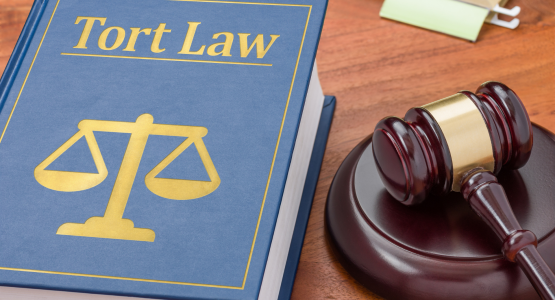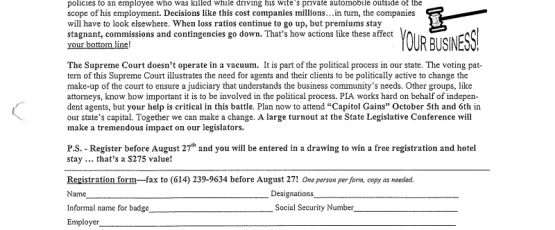Ohio Supreme Court narrowly accepts case challenging Ohio’s 2005 Tort Reform Law
The Ohio Supreme Court recently voted 4-3 to accept a case that places a portion of Ohio’s 2005 tort reform overhaul in jeopardy. Notably, Justice Kennedy, Justice Fischer, and Justice DeWine dissented in the decision to accept the case.
In Amanda Brandt v. Ray Pompa, et al., the court will decide whether the 2005 tort reform overhaul that caps a portion of non-economic damages as applied to minor victims of sexual abuse that suffer severe and permanent injuries violates constitutional rights to due process, equal protection, trial by jury and open courts.
While the court issued a decision in 2016 that upheld these caps, Brandt argues that her case is distinguishable from the 2016 lawsuit and noted that in its 2016 decision the court also wrote that “there may exist a set of facts under which application of the statutory damage caps would prove unconstitutional.”
The 3-2 decision issued in 2016 was authored by Justice Judith French and found that the state law which places a maximum $350,000 award for each plaintiff for each “occurrence” is in line with the Ohio Constitution, even in the case of minors unlikely to be awarded significant economic damages. That decision was joined by Justice Sharon Kennedy. Justice Judith Ann Lanzinger concurred in judgment only and Chief Justice Maureen O’Connor and Justice Terrence O’Donnell stated they would dismiss the case as improvidently allowed, letting the appeals court decision stand. Justice Paul Pfeifer and Justice Bill O’Neill dissented.
Ms. Brandt’s case stems from being sexually abused as a minor on numerous occasions by Roy Pompa, according to court documents. In 2018, she filed a civil claim against him, and the jury returned a verdict in her favor of $134 million, including $20 million in non-economic damages after the effective date of the tort reform law, April 6, 2005. However, citing the law and a 2016 high court decision, the trial court reduced Ms. Brandt’s non-economic damages for events occurring after the effective date of the law to $250,000.
With only two of the seven justices that ruled in the 2016 case remaining on the Court, this latest challenge is being watched closely by many.
OIA will inform members of any developments such as when oral arguments are scheduled.
Portions of this article are reprinted from Gongwer News Service, Inc.






